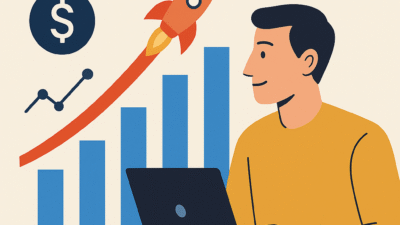Climate change is no longer a distant threat—it’s happening right now. From rising sea levels and deadly wildfires to heatwaves and crop failures, the planet is showing visible signs of distress. Scientists have issued repeated warnings, environmentalists are raising their voices, and data supports the urgency of action.
Yet, despite all the evidence and awareness, the global response remains alarmingly slow.
This raises a critical question:
If climate change is such a big issue, why aren’t we acting like it?
This article explores why climate change often fails to receive the attention it deserves from governments, corporations, and even the general public. We’ll also look at how this lack of urgency could be costing us far more than we realize.
The Climate Crisis: What We Know
According to the IPCC (Intergovernmental Panel on Climate Change), the Earth has already warmed by 1.2°C since pre-industrial times. If the trend continues unchecked, we could cross the 1.5°C threshold by the early 2030s—leading to irreversible damage.
Consequences include:
- Melting ice caps and rising sea levels
- Extreme weather events (floods, droughts, hurricanes)
- Ecosystem disruption and species extinction
- Food and water insecurity
Health crises caused by pollution and heat stress
So Why Are We Not Acting Fast Enough?
❌ Short-Term Mindsets
One of the biggest reasons for inaction is our collective focus on short-term problems. Politicians prioritize election cycles. Businesses focus on quarterly profits. Even individuals are often more concerned about daily conveniences than future risks.
Result: Climate policies get delayed. Green investments get postponed. And emissions continue rising.
❌ Lack of Immediate Personal Impact
Climate change often feels like a “future” problem—something that will happen decades from now or in some faraway country. This perception reduces personal urgency.
Unless someone has personally experienced a wildfire, flood, or water crisis, it’s easy to ignore the signs.
❌ Misinformation and Denial
Despite overwhelming scientific consensus, climate change denial still exists—often fueled by misinformation campaigns, political interests, and fossil fuel lobbying.
This confusion weakens public support for climate policies and creates division instead of unified action.
❌ Complexity of the Problem
Unlike single-issue problems (e.g., a power outage), climate change is multifaceted and slow-moving. Its causes are embedded in global energy systems, agriculture, transportation, and consumption habits—making it harder to address in one simple step.
Is Awareness Enough? Why Awareness Doesn’t Equal Action
In recent years, climate change awareness has skyrocketed thanks to:
- School climate strikes
- Documentaries like Before the Flood and Seaspiracy
- Viral content on rising temperatures and plastic pollution
But awareness without accountability means nothing.
Many people know the planet is in trouble but feel:
- Powerless to make a difference
- Overwhelmed by the scale of the problem
- Distracted by everyday challenges (like inflation or job stress)
That’s why real change must come from both top-down policies and bottom-up behavior shifts.
Who Holds the Power to Act—And Isn’t?
🏛️ Governments
Some governments talk about climate goals but take limited action. Promises like “net zero by 2050” are vague and often underfunded.
Policies that could help—like carbon taxes or banning non-renewable subsidies—face political backlash or lobbying pressure.
🏭 Corporations
Big corporations contribute significantly to global emissions. Yet many still greenwash their branding while continuing unsustainable practices behind the scenes.
ESG (Environmental, Social, Governance) policies are becoming trendy, but without transparency and regulation, they remain more talk than action.
🧍 Individuals
While individuals alone can’t solve climate change, millions making conscious choices can move markets and pressure policymakers.
Small changes—like reducing meat consumption, cutting plastic use, and supporting sustainable brands—can collectively drive big results.
The Real Cost of Delay
Delaying climate action doesn’t just harm the environment—it hurts the global economy and public health.
📉 Economic Impact:
- Billions lost due to climate disasters
- Increased insurance premiums
- Food supply chain instability
⚠️ Health Impact:
- Air pollution causing respiratory issues
- Heatwaves linked to heart and kidney failures
Increase in climate-induced mental health problems
Conclusion: Climate Change Isn’t Being Ignored—It’s Being Postponed
In 2025, climate change is not a lack of awareness problem—it’s a lack of willpower, accountability, and unified action. The danger is real. The consequences are unfolding. But the urgency isn’t being matched.
The time for awareness has passed—this is the time for solutions. Governments must legislate, corporations must transform, and individuals must demand change.
Because inaction today is an irreversible crisis tomorrow.
#ClimateCrisis #ClimateChange2025 #EcoPolicy #EnvironmentalUrgency #GreenSolutions



